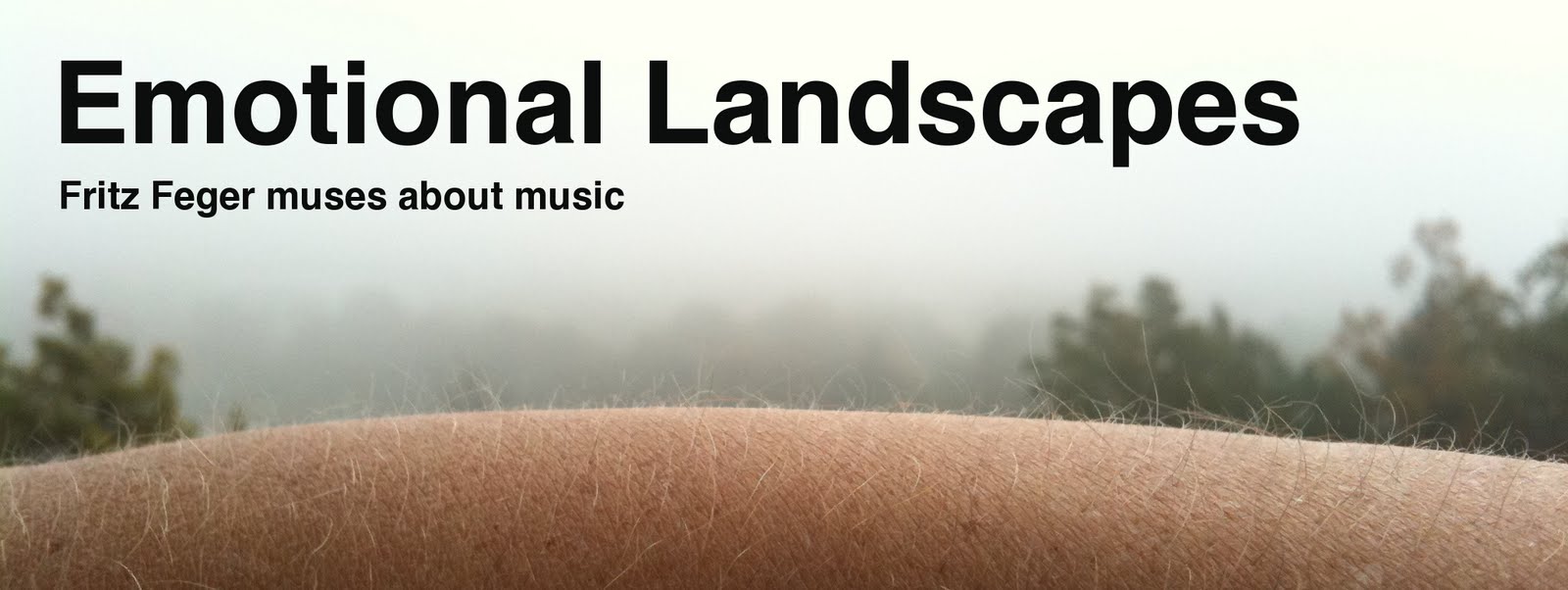On this year's Summer Academy of Forum Scientiarum I have been presenting excerpts from the short film NOWHERENOW. The snippets were underlayed with different pieces of music in order to show how drastically perception of what is seen on screen can be influenced by it. This posting includes part of the workshop material.
To begin with, here's five different soundtracks for the first one and a half minutes of the film. As the snippets are meaningful in this blog posting only, they are password protected. The password for all videos simply is: blog.
The first example features the original soundtrack, on which I've been posting recently:
The illustration music beginning with the fade in is meant to introduce the journalist as a rather pitiful character, in spite of his arrogant appearance and his indifference towards the sublimeness of the sea (at first, he pees, then he puts up his headphones). The music on his mp3 player, in contrast, is no comment but what the guy on screen is in fact listening to: too complicated, cold, pretentious.
To approach the possibilities slowly, the second soundtrack is children's music (first from Die kleine Hexe, secondly from Pinocchio). Here, not more is to be shown than our inclination to accept even such a contrast.
The music establishes a children's film, and if we'd zap into something like that it would not occur to us that this is no children's film. Naturally, in the next scene a girl with a Pippi Longstocking outfit appears. We buy into the music even if the picture does not match.
The next music added turns the film into a whodunnit:
A suspense atmosphere with threateningly billowing surface and a Harmon mute trombone (from Früchte des Nichts) is anxiously asking which terrible thing is going to happen soon, and on the headphones there is a "battleground the morning after" music (aus Die Judith von Shimoda). Interestingly, the headphones music does not seem to be what the protagonist is in fact listening to, but one commenting on the horror of the oncoming deed from the audience's perspective. I would not be surprised if the man, a hitman rather than a journalist, would, after voicing "excuse me!" produce his automatic pistol.
The next music added is one more step into the same direction. Instead of a hitman we here might have a serial killer:
The sacral illustration music (from Novemberszenen) does not match the totally un-meditative scene, so that it thwarts the interpretation of what can be seen. The putatively reserved arrogance is then best reinterpreted into mania. Such a contrasting has been widely used since Hitchcock. Now, the headphones music seems more like his actual mp3 player: he stimulates himself. Instead of the clean pistol the professor is more likely to be assassinated with a more emotional thing, maybe a wire sling or an axe.
My favourite example is the following one (with a world hit by Burt Bacharach and a snippet taken from D'Angelo):
The illustration music is obviously not "into the scene" any more, but an explicit comment. The journalist all of a sudden is a likeable rascal dogged by bad luck. On his mp3 player he fancies music which is so cool as he wants to be.
Finally I have to offer three different music additions to an "action" scene from the same film. To begin with, there is a classical (Tchaikovsky symphony) dramatical music which has been heard like this thousands of times as accompany of action scenes since the times of silent picture:
Because important details of the scene do not yield action seriousness (the calm see, the professor's measured treads, the professor being an old fogey and not Bruce Willis - consider however the shaky hand camera and the 100% action compatible journalist), the music has an ironical impact. The sequence reminds me of a Monty Python film.
Conversely, it is easily possible to make the scene part of a comedy in spite of the fisticuffs, the hand camera and the drama on the journalist's face and in his acting. Here's the same sequence with Schützenfest from Die kleine Hexe:
To conclude, consider the same scene again, now with the jazz standard Unforgettable, sung by the unforgettable Nat "King" Cole:
Matching the winking Raindrops Keep Falling on My Head version of the beginning, we here have the jinx back again. To me this sequence is like from a Woody Allen film. Technically speaking, this music does not emphasise one of the visible aspects of the scene and makes forget the rest, but adopts a third attitude of its own.



